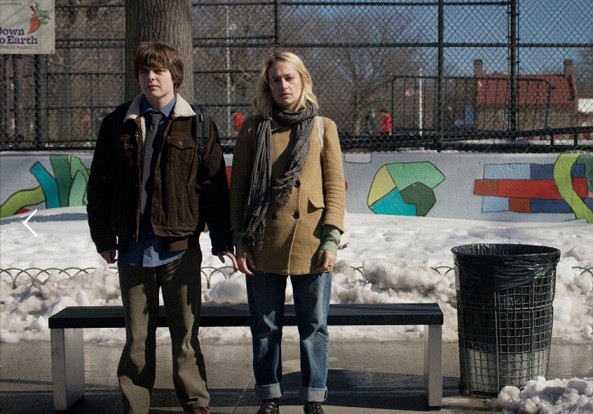Filmmaker Melissa Miller Costanzo’s films have been featured in IFP Film Week and the American Black Film Festival. She previously directed the short film “The Busker,” produced projects such as “Those People” and “Zarra’s Law,” and worked in the art department on award-winning films including “The Fighter” and “Precious.” Miller Costanzo recently wrapped work in the art department on Barry Jenkins’ next film, “If Beale Street Could Talk.”
“All These Small Moments” will premiere at the 2018 Tribeca Film Festival on April 24.
W&H: Describe the film for us in your own words.
MMC: A teenage boy’s infatuation with a woman he meets on the bus offers him temporary solace from his crumbling home life.
W&H: What drew you to this story?
MMC: I wrote this script because I had many personal feelings I wanted to explore that stemmed from different facets of my life: reflecting on the pain of first loves, grappling with forbidden ones, and dealing with love’s fickle nature.
W&H: What do you want people to think about when they are leaving the theater?
MMC: I hope people will reflect on their own “small moments” that they continue to carry around with them, and on how our collective life and consciousness are formed by them.
W&H: What was the biggest challenge in making the film?
MMC: We were shooting in March of 2017 and were hit with a Nor’easter. I suddenly had a winter movie. So things like continuity, exterior locations, bus work, and actor safety all became an issue.
W&H: How did you get your film funded? Share some insights into how you got the film made.
MMC: I was working in the art department on the first season of the Showtime show “The Affair.” I was hoping to get a meeting to be considered for the writers assistant position. After showrunner Sarah Treem and head writer Anya Epstein read this script, they decided I should set my sights on something more and helped me get representation. From there, my agents went out to various producers and after meeting with a handful, Lauren Avinoam and Jed Mellick from Moving Pictures Artists felt like the right fit.
From there, they brought on Katie Leary from Vineyard Point Productions for financing, and then the team moved forward to secure the rest of what we needed to be greenlit.
W&H: What does it mean for you to have your film play at Tribeca Film Festival?
MMC: I couldn’t have asked for a better platform for the film. It’s a homegrown movie that is really a love letter to Brooklyn, so premiering it at Tribeca has always been the goal. I couldn’t be more thrilled to have the whole cast and crew, and friends and family with me for the premiere.
I was also here during 9/11 and watched the towers come down, so [screening my film at Tribeca] feels full circle for me in a lot of ways.
W&H: What’s the best and worst advice you’ve received?
MMC: The best advice was from my DP, Adam Bricker. When we would block he’d say, “Do it like a play,” and we’d let the actors do what came naturally and set up our shots around that. I think we got some really honest stuff that way.
This isn’t necessarily bad advice, but just the idea of not getting certain coverage or close-ups because you know you can punch in, in post. An emotional scene shot in a wide and then punched in simply won’t have the same effect as just taking the time to shoot the close-up on the day. So, basically don’t cut your shot list — if you can help it — to lean on creating shots in post.
W&H: What advice do you have for other female directors?
MMC: Be vocal. If you’ve written something and you want to direct — say it. I remember the first time I sat down with my agents about this project and they asked if I wanted to direct and I said yes, and that was that.
Producers were told, “If you want this project, she’s the director.” Fortunately, it was never questioned, and it’s a real testament to my producers for believing in my vision.
W&H: Name your favorite woman-directed film and why.
MMC: I absolutely love Gia Coppola’s “Palo Alto.” I referenced it a lot in prep with all of my department heads. There’s something so beautifully fluid, painful, and unflinching about it. I thought the DP Autumn Durald did an incredible job shooting it, too.
W&H: Hollywood and the global film industry are in the midst of undergoing a major transformation. Many women — and some men — in the industry are speaking publicly about their experiences being assaulted and harassed. What are your thoughts on the #TimesUp movement and the push for equality in the film business?
MMC: I feel lucky to be a filmmaker in the time of a really active movement. It’s not just backroom chatter anymore, it’s tangible and malleable change. I think we also need to work hard on inclusion. [There are] men who are fighting alongside us. The narrative is not women vs. men — it’s all of us pushing the boulder up the hill together.







